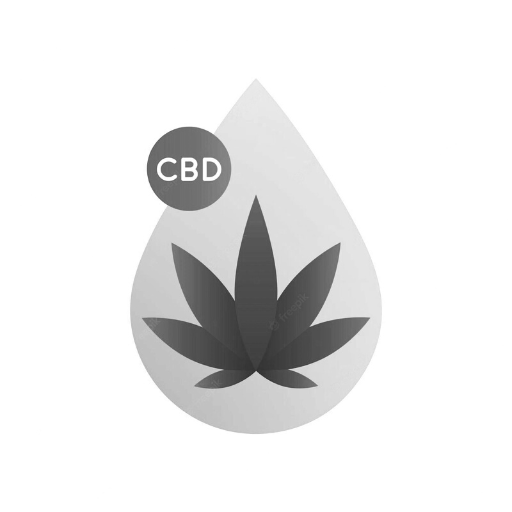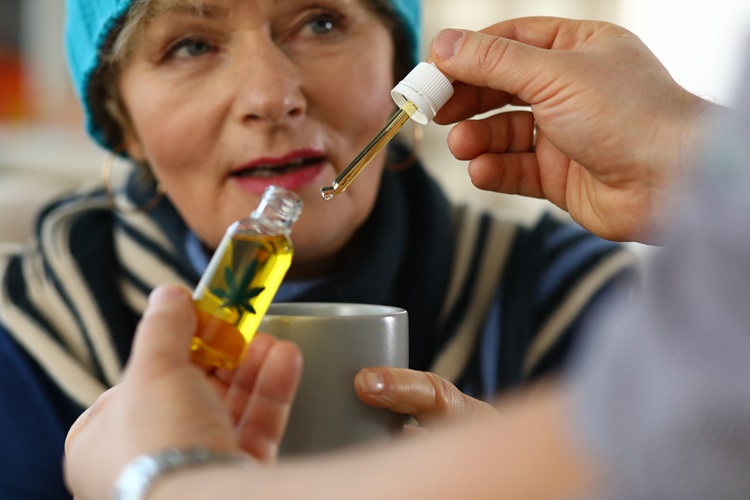
CBD Oil for Pain Relief in Elderly Patients: Benefits and Considerations

As the population ages, more people are seeking alternative and complementary treatments to manage chronic pain, which is a common issue among the elderly. One such treatment that has gained popularity in recent years is CBD oil. This blog post will explore the benefits and considerations of using CBD oil for pain relief in elderly patients, providing a comprehensive guide to help you or your loved ones make an informed decision.
What is CBD Oil?
CBD, or cannabidiol, is a natural compound found in the cannabis plant. Unlike THC (tetrahydrocannabinol), which is the psychoactive component of cannabis, CBD does not cause a “high.” CBD oil is extracted from the hemp variety of the cannabis plant and is known for its potential therapeutic benefits, particularly in pain relief, anxiety management, and improving sleep.
How Does CBD Oil Work?
CBD interacts with the body’s endocannabinoid system (ECS), a complex network of receptors and neurotransmitters that regulate various physiological processes, including pain perception. By influencing the ECS, CBD may help reduce inflammation and alter the way pain signals are processed, offering relief from chronic pain conditions commonly experienced by elderly patients.
The Prevalence of Pain in the Elderly
Chronic pain is a widespread issue among older adults, with conditions like arthritis, neuropathy, and musculoskeletal disorders becoming more prevalent with age. Traditional pain management often involves prescription medications, which can have significant side effects, including the risk of addiction, especially with opioids. This has led to increased interest in natural alternatives like CBD oil.

Benefits of CBD Oil for Pain Relief in Elderly Patients
The benefits of CBD oil for pain relief in elderly patients are numerous, ranging from its non-psychoactive nature to its anti-inflammatory properties. It offers a natural, safe, and effective alternative to traditional pain management methods, enhancing the overall quality of life for seniors.
1. Non-Psychoactive and Safe
- Understanding the Non-Psychoactive Nature of CBD:
One of the most significant advantages of CBD oil for elderly patients is that it does not produce a psychoactive effect. This makes it a safer alternative for those concerned about the mind-altering effects associated with THC. - Safety Profile:
CBD has a favorable safety profile, with studies indicating that it is generally well-tolerated, even at higher doses. This is crucial for elderly patients who may be taking multiple medications and are at risk of drug interactions or adverse effects from traditional painkillers.
2. Reduces Inflammation
- Anti-Inflammatory Properties:
Inflammation is a common underlying factor in many chronic pain conditions. CBD oil has been shown to have potent anti-inflammatory properties, which can help reduce pain and swelling, particularly in conditions like arthritis. - Long-Term Relief:
By addressing the root cause of inflammation, CBD oil may provide long-term relief from chronic pain, improving the overall quality of life for elderly patients.
3. Improves Sleep Quality
- Link Between Pain and Sleep:
Chronic pain often leads to poor sleep, creating a vicious cycle where lack of rest exacerbates pain. CBD oil has been reported to improve sleep quality by reducing pain and anxiety, helping elderly patients achieve a more restful night’s sleep. - Sleep Disorders in the Elderly:
Insomnia and other sleep disorders are common among older adults. CBD oil’s potential to promote relaxation and ease discomfort can be particularly beneficial in managing these issues.
4. Alleviates Anxiety and Depression
- Mental Health and Pain:
Chronic pain can take a toll on mental health, leading to anxiety and depression. CBD oil has been shown to have anxiolytic (anxiety-reducing) and antidepressant effects, which can help improve mood and overall mental well-being in elderly patients. - Improving Quality of Life:
By alleviating both physical and emotional discomfort, CBD oil can contribute to a better quality of life, helping elderly patients maintain independence and enjoy daily activities.
Considerations When Using CBD Oil for Elderly Patients
When using CBD oil for elderly patients, it’s essential to carefully evaluate factors such as potential drug interactions, appropriate dosing, and the quality of the CBD product to ensure safety and effectiveness. Consulting with healthcare providers is crucial to tailor the treatment to the individual’s specific needs.
1. Consultation with Healthcare Providers
- Importance of Medical Guidance:
Before starting any new treatment, including CBD oil, it is essential for elderly patients to consult with their healthcare provider. This is particularly important for those who are taking other medications, as CBD can interact with certain drugs, including blood thinners and medications metabolized by the liver. - Personalized Dosage:
A healthcare provider can help determine the appropriate dosage based on the patient’s specific condition, weight, and overall health. Starting with a low dose and gradually increasing it allows for safe and effective use.
2. Quality and Source of CBD Oil
- Choosing High-Quality Products:
The market for CBD products is vast, and not all products are created equal. It is crucial to choose high-quality CBD oil from reputable manufacturers that provide third-party lab testing to ensure the product is free from contaminants and contains the stated amount of CBD. - Full-Spectrum vs. Isolate:
Full-spectrum CBD oil contains other beneficial compounds from the hemp plant, including terpenes and trace amounts of THC (within legal limits), which may enhance its therapeutic effects. However, for elderly patients who are concerned about THC, a CBD isolate, which contains only pure CBD, may be preferred.
3. Potential Side Effects
- Understanding Side Effects:
While CBD is generally well-tolerated, it can cause some side effects, particularly when taken in high doses. Common side effects include dry mouth, drowsiness, and changes in appetite. Monitoring how the patient responds to CBD oil and adjusting the dosage as needed can help minimize these effects. - Drug Interactions:
As mentioned earlier, CBD can interact with certain medications. It is important to discuss any potential interactions with a healthcare provider to avoid complications.
4. Legal Considerations
- Legality of CBD:
The legality of CBD products varies by region. In many areas, CBD derived from hemp with less than 0.3% THC is legal, but it is important to check local laws and regulations before purchasing or using CBD oil. - Product Labeling:
Ensure that the CBD oil being used is properly labeled and complies with all local regulations regarding CBD content and sourcing.
How to Use CBD Oil for Pain Relief in the Elderly
Understanding the proper methods and dosage for using CBD oil is crucial for safely and effectively managing pain in elderly patients. This section provides guidance on different administration techniques and finding the right dosage tailored to individual needs.
1. Methods of Administration
- Sublingual Tinctures:
CBD oil can be administered under the tongue using a tincture. This method allows for quick absorption and is easy to adjust the dosage. - Topical Applications:
For localized pain, such as arthritis in the joints, CBD-infused creams and balms can be applied directly to the affected area. This provides targeted relief without affecting the rest of the body. - Edibles and Capsules:
CBD oil can also be consumed in the form of edibles or capsules, which offer a convenient way to incorporate CBD into a daily routine. However, this method may take longer to produce effects as the CBD must pass through the digestive system.
2. Finding the Right Dosage
- Start Low and Go Slow:
It is recommended to start with a low dose of CBD oil and gradually increase it until the desired pain relief is achieved. This helps minimize the risk of side effects and ensures the most effective dose is used. - Monitoring Effects:
Keep track of how the elderly patient responds to CBD oil, noting any improvements in pain, sleep, and overall well-being. Adjust the dosage as needed in consultation with a healthcare provider.
Conclusion
CBD oil offers a promising alternative for managing chronic pain in elderly patients. With its anti-inflammatory, anxiolytic, and sleep-enhancing properties, CBD oil can improve the quality of life for older adults dealing with chronic pain conditions. However, it is important to approach its use with careful consideration, particularly regarding dosage, potential interactions with other medications, and the quality of the product. By consulting with healthcare providers and choosing high-quality CBD products, elderly patients can safely and effectively incorporate CBD oil into their pain management regimen.